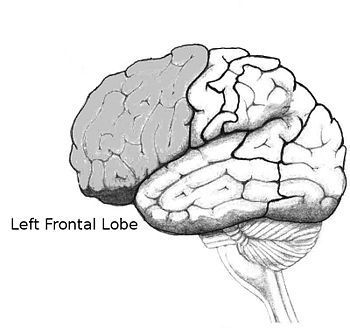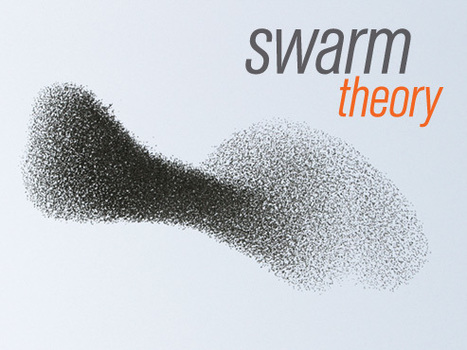 Your new post is loading...
 Your new post is loading...
"“How Should Rationalists Approach Death?” That’s the title of the panel I’m moderating this weekend at Skepticon, and I couldn’t be more excited. It’s a big topic – we won’t figure it all out in an hour, but I know we’ll get people to think. Do common beliefs about death make sense? How can we find comfort about our mortality? Should we try to find comfort about death? What should society be doing about death?
We’ve all had moments when we’ve been working hard on a problem, trying to solve it, but failing to do so. We try to focus more and we stay at the office for an extra hour, but no, still nothing. Eventually we decide to give it a rest and head home. And then, on the bus, while not really even thinking about the whole problem anymore, a solutions pops up. And it’s a magnificent solution!
No matter which public topic you discuss or which personal aspect you worry about – you need reasons for your opinion and argumentation. Moreover, the ability of reasoning is responsible for your cognitive features of decision making and choosing among alternatives.
Via Philippe Vallat, Thomas Menk
Prof. Dr. Gerd Gigerenzer referiert über die gefühlte Intelligenz und Erforschung der Intuition. Ein Mitschnitt vom Telekolleg.
Via Thomas Menk
There have been many good books on human rationality and irrationality, but only one masterpiece. That masterpiece is Daniel Kahneman’s Thinking, Fast and Slow. High quality global journalism requires investment. Please share this article with others using the link below, do not cut & paste the article. See our Ts&Cs and Copyright Policy for more detail. Email ftsales.support@ft.com to buy additional rights. http://www.ft.com/cms/s/2/15bb6522-04ac-11e1-91d9-00144feabdc0.html#ixzz1dxi7PX2B Kahneman, a winner of the Nobel Prize for economics, distils a lifetime of research into an encyclopedic coverage of both the surprising miracles and the equally surprising mistakes of our conscious and unconscious thinking. He achieves an even greater miracle by weaving his insights into an engaging narrative that is compulsively readable from beginning to end. My main problem in doing this review was preventing family members and friends from stealing my copy of the book to read it for themselves.
"mmowgli is both the coolest project I have ever worked on and the hardest to describe in words, but here it goes: mmowgli is an experiment in generating collective intelligence and a pilot project being developed by the Office of Naval Research. Beyond that, mmowgli is ultimately the answer to a few questions, ones that haunted me every day during my tour as a Science Advisor at the Pentagon: why did I experience such a disconnect between technologists and “innovators,” on one hand, and warfighters and end users on the other? Why didn’t “game changing innovations” generate more enthusiasm from those who were “in the game?” And what was I doing to make it better? As my Pentagon tour drew to a close, these questions nagged at me and morphed into a thousand others: What if we took a heavy, formal approach, and made it lighter and more of a continuous conversation instead of a blueprint? What if you didn’t need a fully formed idea to make a contribution? What if ideas, even half-formed ones, could meet up in space and recombine with other ideas to form new ones? What if this conversation engaged more stakeholders and tolerated more excursions? Finally, what if this conversation became so rich and compelling that, instead of truncating the debate, it actually enlarged the universe of possibilities?"
Via Howard Rheingold
Is dyslexia a brain dysfunction? An alternative interpretation of the facts.
How are values computed in the brain? Rewards can be as many things: the expectation when having just ordered your favourite dish; the child's joy at Christmas Eve; the enjoyment of good music or ...
By Elizabeth Whitcombe; Music can influence our emotions and the quality of our judgements. Our emotions play a key role in how we reason. If we are emotionally out-of-whack, then we will not be able to reason as effectively. Music is the art form that is most able to dissuade us from thinking critically. Our brains have a plastic property - the circuits we use more get stronger, those we use less atrophy. The characteristics of the music you listen to; and the way you choose to listen to it will affect your ability to make decisions. Because of these properties music has always been an attractive vehicle for propaganda. Music's power to persuade is at the heart of Plato's argument for censoring the Arts. So what gives music this power? Nature built us to look for beauty, and music exploits our tools for finding it.
Social neuroscience is a rapidly growing discipline that examines the relationship between the brain and social behavior. The “social brain hypothesis” posits that, over evolutionary time, living in large, social groups favored the physical growth of brain regions important for social behavior.
We live in a world of increasing pressure and uncertainty, driven in large part by digital technology infrastructures. These marvelous infrastructures bring us unprecedented connectivity and opportunities to better ourselves.
The economy is a dynamic system which is far too complex for us to understand. Human nature is extremely complex and billions of irrational humans form the economy. How can such a system ever be thought to be inherently stable - as many prominent economists have sustained? But this system, like every other natural or man-made system, must respect the laws of physics, even if they may be unknown at a given time. One of the instruments that have enabled the crisis, and allowed it to be hidden for a long time, are sophisticated math models. There was nothing in those models that would even hint catastrophy because models can only tell you what you hard-wire into them. A Panglossian approach to finance and the economy excludes extreme events and catastrophies, allowing bubbles to grow and Ponzi schmes to flourish. So failure was not contemplated in the models. And nobody can force you to do so.
Dan Ariely, a professor of behavioral economics at Duke University, presents examples of cognitive illusions that help illustrate why humans make predictably ir...
|
Earlier this year I complained, on Rationally Speaking, about the fact that so many philosophers think it's sufficient to back up their arguments by citing "intuition." It's a tricky term to pin do. Another important side point the researchers make is there’s more than one way to use your intuitions. Philosophers certainly do use them as justification for claims, but they also use intuitions to generate claims which they then justify using more rigorous methods like logic and evidence. 83% of survey respondents agreed that intuitions are useful in that latter way, and I agree too — I have no problem with people using intuition to generate possible ideas, I just have a problem with people saying “This feels intuitively true to me, so it must be true.”
At the cusp of the twenty-first century, we are experiencing unprecedented structural shifts in our economy brought about by the revolutions in computation and communication technologies. Today the world is linked in ways unimaginable just a decade ago. A new kind of economy is emerging–the connected economy--a shift that rivals the onset of the Industrial Revolution in its impact on society and the way commerce is transacted.
Via Philippe Vallat
Beneath the biases of intuition, or how your experiencing self and your remembering self shape your life.
Via Philippe Vallat, Thomas Menk
Our minds cope better with negative events than we imagine, so avoid the extended warranty. Everyone hates to lose out. Indeed in many circumstances we hate losses more than we love gains (it's called risk aversion). The insurance industry knows this only too well so it frames products in terms of losses: Worried you're going to be robbed?
Worried your holiday will be a disaster?
Worried you're going to die?
Well, worry no more! Insurance is the answer!
"Traders and rodents...seem to have something in common." --The Economist If you're in the current cool-crowd of psychology, you are probably a cognitive psychologist. Interest in, and f...
Swarm Intelligence, or Swarm Theory, is the collective behavior of decentralized, self-organizing systems: ants in a colony, movie raters at Rotten Tomatoes, participants in a market economy, etc. ...
It's a book about rapid cognition, about the kind of thinking that happens in a blink of an eye. When you meet someone for the first time, or walk into a house you are thinking of buying, or read the first few sentences of a book, your mind takes about two seconds to jump to a series of conclusions. Well, "Blink" is a book about those two seconds, because I think those instant conclusions that we reach are really powerful and really important and, occasionally, really good.
Complex and widespread activation in many brain areas is seen while performing, listening or mentally imaging music, activity that varies with training, previous exposure, personal preference, emotional involvement and many other factors. Playing a musical instrument demands extensive motor and cognitive abilities, and early musical learning results in plastic reorganization of the developing brain – one example being the increased cortical representation area for the left little finger in (right-handed) string-players, which correlates with age at the start of training. Even though the developing brain has the most pronounced changes, the adult healthy brain has a considerable plasticity. Conductors have superior spatial tuning compared with non-musicians and pianists. Attentive listening to music for as little as three hours can temporarily alter the auditory cortex. Interactions between genetic predisposition, environment and training play a role in music as in other areas. It has been proposed that musical training may improve other cognitive functions. There is some evidence that this may be the case but it is an area that needs further exploration.
By Daniele Schilirò ; Abstract: Classical mathematical algorithms often fail to identify in time when the international financial crises occur although, as the classical theory of choice would suggest, the economic agents are rational and the markets are or should be efficient and behave also rationally. This contribution does not pretend to give a complete answer to these questions, but it will highlight some well-known limits of the classical theory of rational choice and compare this theory of choice with the approach that seeks to combine economics and psychology and that has established itself as cognitive or behavioral economics. In particular, the present paper will focus on the juxtaposition of the concepts of perfect rationality and bounded rationality. It concludes with some references to the literature of behavioral finance which has given important contributions in explaining the behavior and the anomalies of financial markets.
Legendary Israeli-American psychologist Daniel Kahneman is one of the most influential thinkers of our time. A Nobel laureate and founding father of modern behavioral economics, his work has shaped how we think about human error, risk, judgement, decision-making, happiness, and more. For the past half-century, he has profoundly impacted the academy and the C-suite, but it wasn’t until this month’s highly anticipated release of his “intellectual memoir,” Thinking, Fast and Slow, that Kahneman’s extraordinary contribution to humanity’s cerebral growth reached the mainstream — in the best way possible.
"It's a very chaotic environment," declares Terri Kelly, (WL Gore) the company's chief executive officer, with obvious pride. And there's more. "For some reason, management just never took hold in our company ... we don't like the 'manager' word ... we get very angry when people call [the staff] employees ..."
Law and economics embeds a theory - that people are rational maximizers of their self-interest. Law and economics admits its theory is unrealistic; it touts instead its theory’s ability to predict.
|
 Your new post is loading...
Your new post is loading...
 Your new post is loading...
Your new post is loading...




























